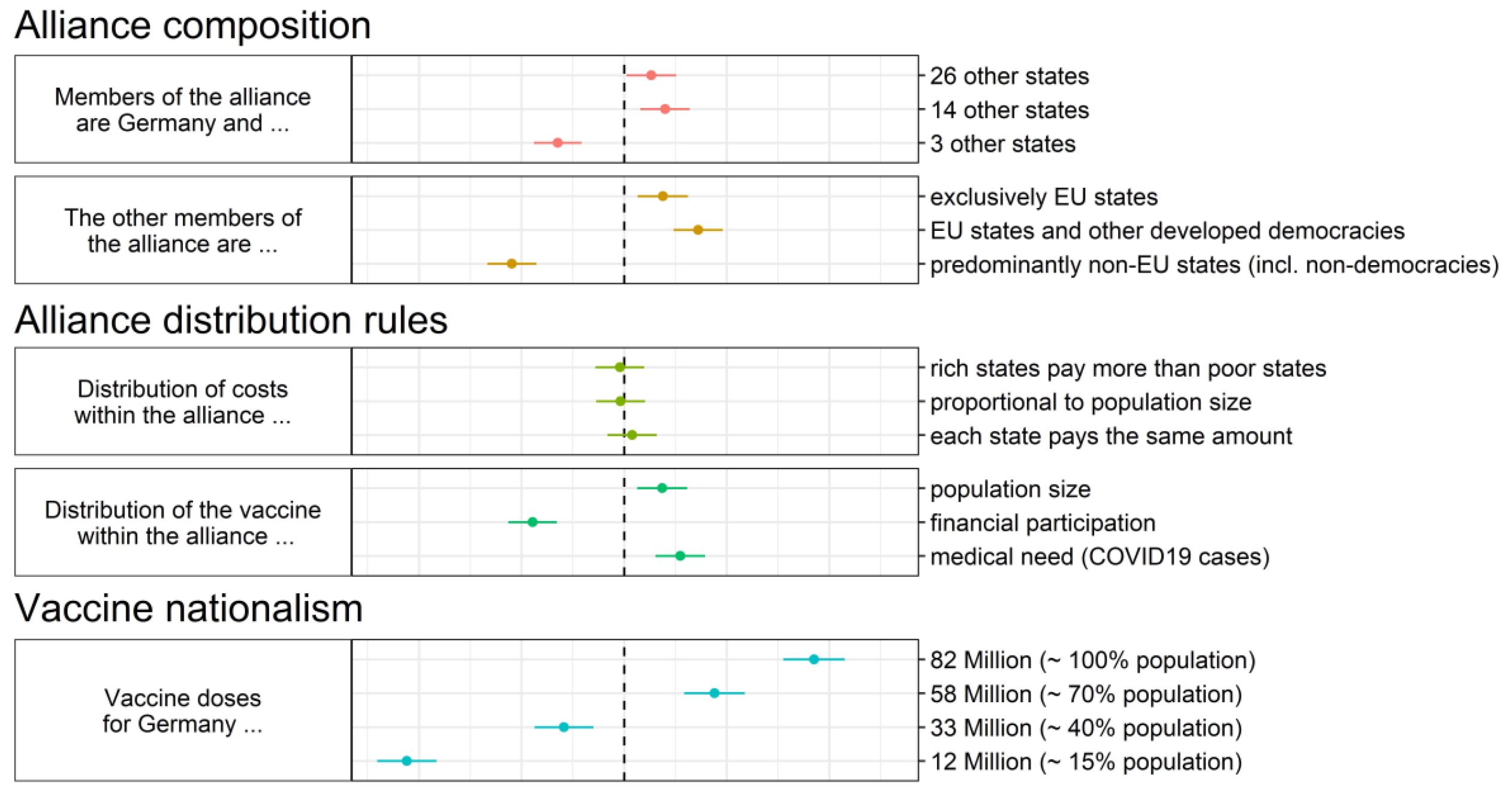The paper „Vaccine Alliance Building Blocks: A Conjoint Experiment on Popular Support for International COVID-19 Cooperation Formats“ has been accepted for publication at Policy Sciences. The paper is joint work with Pieter Vanhuysse (Southern Denmark University) and Markus Tepe (University of Oldenburg). The paper is published as open access and you can download it from here. This is the abstract:
The design principles of institutions that visibly and significantly affect citizens’ lives are
likely to be politically salient. Popular support for these principles is in turn crucial for
institutional viability and effectiveness. Transboundary pandemics are a case in point.
Understanding citizens’ preferences regarding the design of international alliances set
up to mass-produce and distribute vaccines is likely to determine citizens’ subsequent
cooperation with vaccination campaigns. This study explores Germans’ preferences for
international COVID-19 vaccine alliance design principles. We conducted a conjoint
experiment at a recurring cognitive moment in many pandemics’ cycles, between the
initial outbreak and a more devastating but still-unknown second wave, when infection
rates were very low, yet no policy solutions had been developed. We analyzed
preferences regarding four building blocks: (1) alliance composition (size; EUcentrism),
(2) alliance distribution rules (joining cost; vaccine allocation), (3) vaccine
nationalism (cost per German household; coverage in Germany) and (4) vaccine
producer confidence (origin; type). Distribution rules, political ideology and personal
perceptions of pandemic threat matter little. But a larger alliance size and dominant
EU-country composition increase alliance support. And vaccine nationalism is key:
support increases with both lower costs and larger coverage for own-nation citizens.
Moreover, support goes down for Chinese and American producers and increases for
Swiss and especially own-nation producers. In sum, a realist and technocratic outlook
is warranted at the cognitive stage in pandemic cycles when no solutions have been
found, yet the worst already seems to be over, as national self-interest reigns supreme
in popular attitudes.
